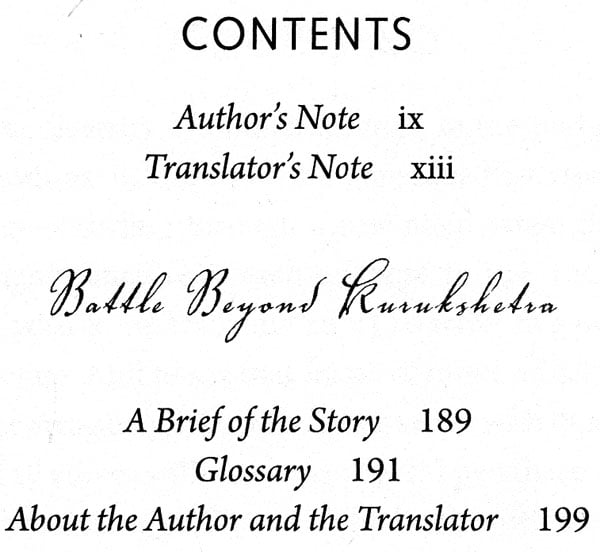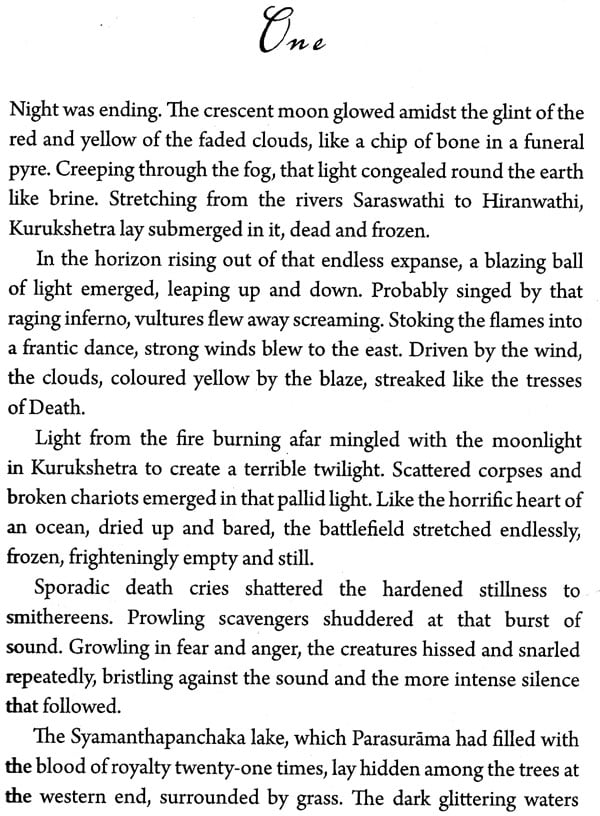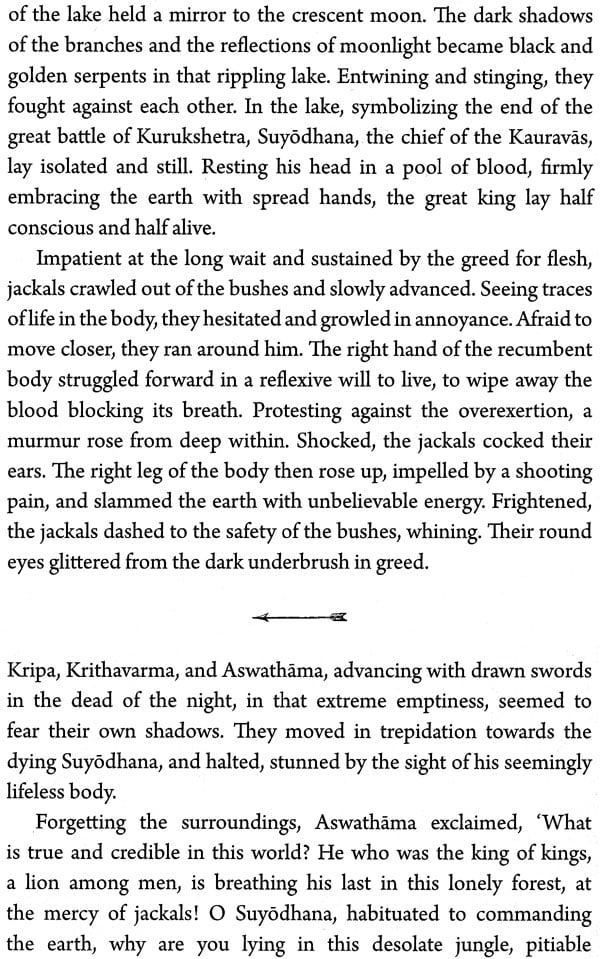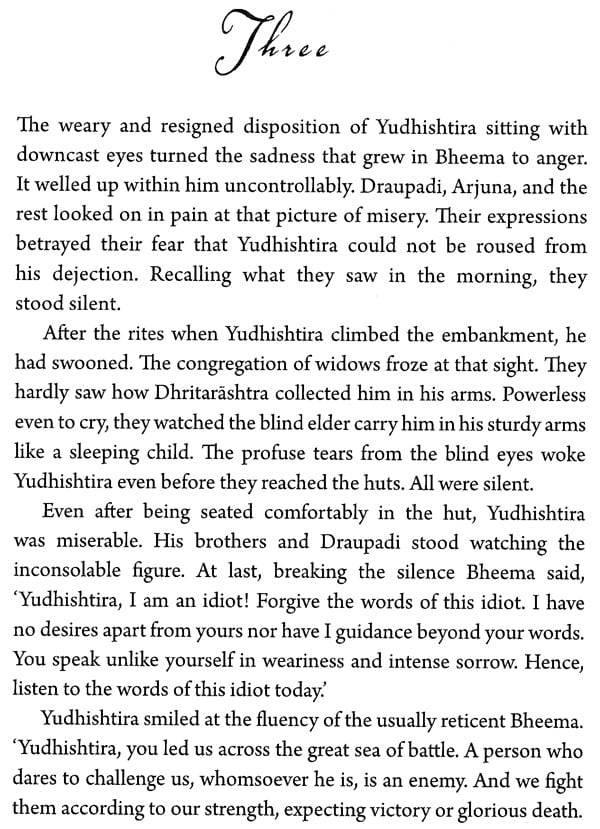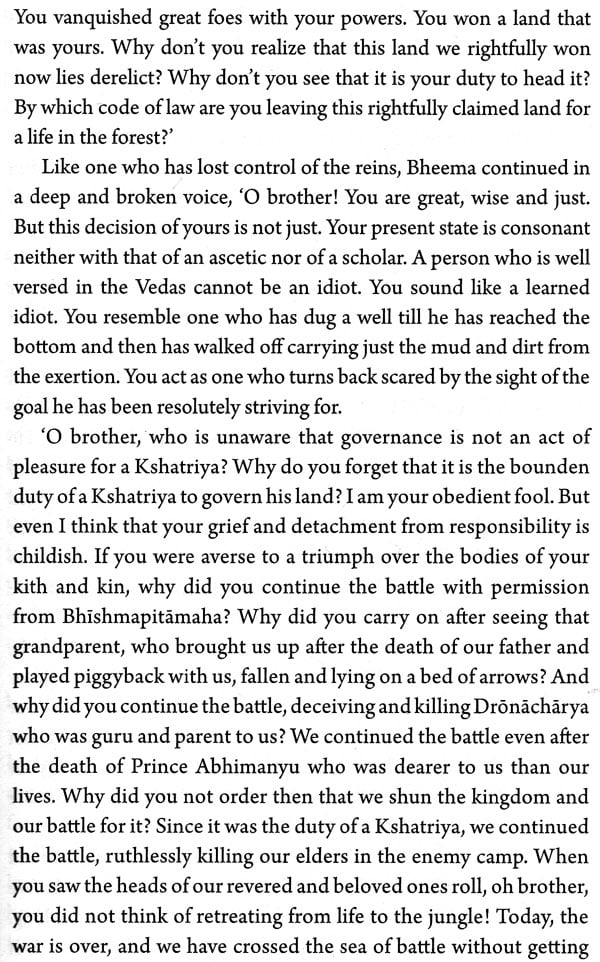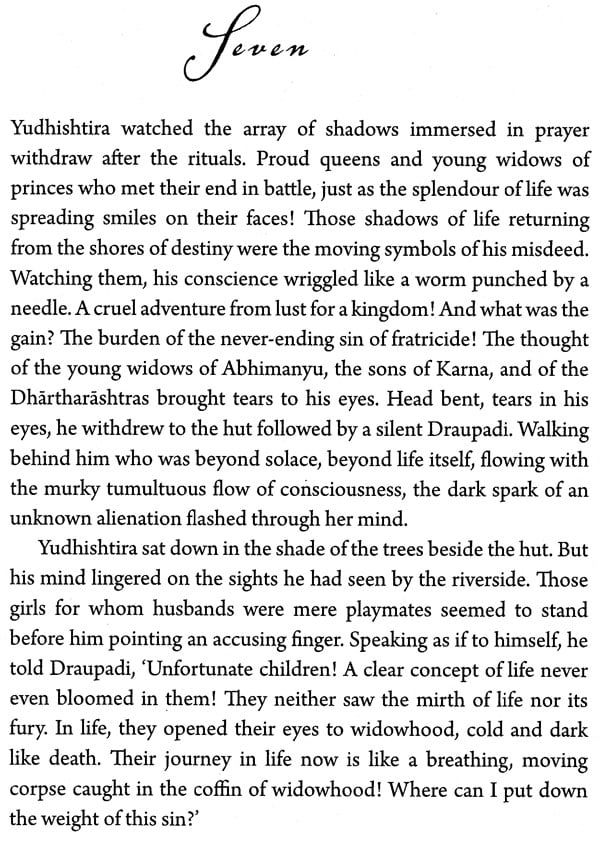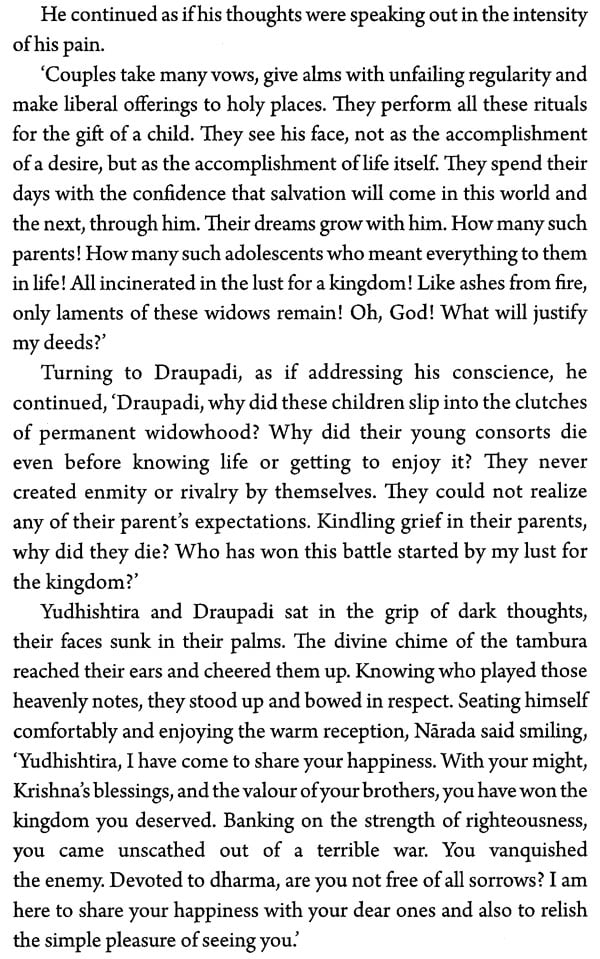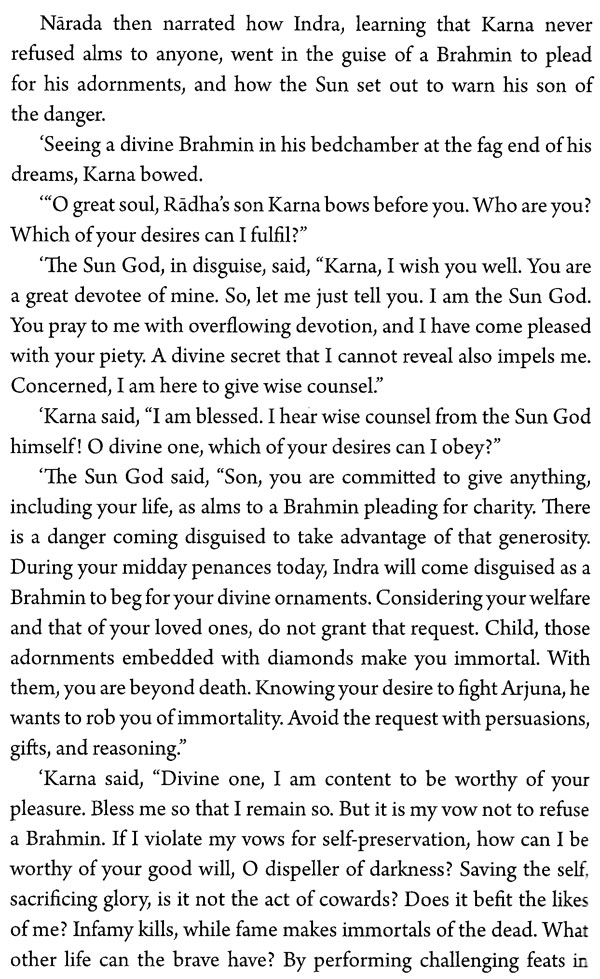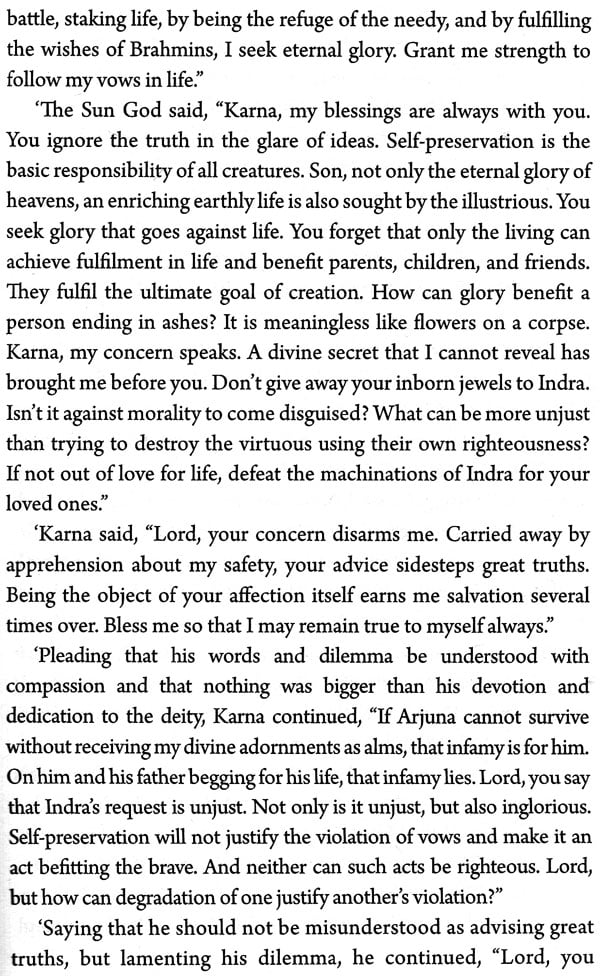
Battle Beyond Kurukshetra (A Mahabharata Novel)
Book Specification
| Item Code: | NAQ807 |
| Author: | P. K. Balakrishnan and Jayalekshmy P. K. |
| Publisher: | Oxford University Press, New Delhi |
| Language: | English |
| Edition: | 2018 |
| ISBN: | 9780199480166 |
| Pages: | 216 |
| Cover: | PAPERBACK |
| Other Details | 8.50 X 5.50 inch |
| Weight | 230 gm |
Book Description
Light from the bre burning afar mingled with the moonlight in Kurukshetra to create a terrible twilight. Scattered corpses ... broken chariots ... sporadic death cries ... prowling scavengers ...the battlefield stretched endlessly.
The victorious Pandava camps burst into deafening cheers amidst burning funeral pyres. The Great War was finally over. But soon enough, when everyone learns the truth about the hated enemy, Karna, that towering figure with the golden glow, another battle starts. Everyone stands stunned, forgetting to even cry. Torn by the guilt of fratricide, Yudhishtira becomes a recluse. Draupadi becomes restless: her tryst with reality begins. What seemed a justifiable end to an ignominious character completely overturns. Her pride for her husbands' valour erodes. Life as she had understood slowly begins to lose meaning.
This Malayalam classic centres on Karna, the most criticized yet admired character of the Mahabharata, treacherously killed by his half-brother Arjuna. His life story unfolds through the eyes of Draupadi, in flashbacks and tales she hears from those around her in the aftermath of the battle of Kurukshetra.
P.k. balakrishnan (1926-1993) was a journalist, author, historian, and critic. He took to writing only when a subject completely seized his interest. Each of the eleven books he has written is a class of its own. His book caste system and history of kerala on kerala's social history was a path-breaking work that completely changed the face of historical studies on kerala. He had forayed into kerala history long before with his books on narayana guru and tippu sultan. Most of his works are literary criticisms, each striking in its originality. This novel, titled ini njan uragnatte in malayalam, was the second of his two novels and it turned out to be the most popular of his works. One of the best known works in the language, it won him accolades, and most importantly, a place in the hearts of the people of kerala. More on him can be found at www.pkbalakrishnan.com.
Jayalekshmy p.k. holds degrees in english, management, and insurance. She is the author's daughter, and this book is her first translation.
In the infinite diversity of human feelings, in the perfection of each of those emotions, in the towering grandeur that rises beyond the ability to see-crawling through a mountain range that imposes a sense of insignificance with each of these in the mind that comes into contact with it, that was my effort to write this novel based on the Mahabharata. And to see that frame of mind, which can be called confidence or arrogance, lying dead like a snake with its head smashed, at the end of all efforts with one's own eyes! I pen these lines, standing not only before the insignificance of the book written but also before the insignificance of the person writing it. Hence, it is beyond me to have an encompassing view of the narrative structure or form of the book. What best I can say is that I desire this book to be a novel subsisting on the epic. In any case, calling this book an epic story is likely to be an equal or a bigger inaccuracy than calling it a novel.
Allow me to explain this possibly strange declaration. In the story of the Mahabharata, its situations, and its characters, the book survives by retaining the same epic atmosphere. A deliberate attempt is made to arrange some components of the Mahabharata into the structure of a novel, and to create a comprehensive form welding those diverse components. When you say 'deliberately', it also means 'artificially' to some extent. Such intellectual exercises give birth to the mockery of a figure rather than a beautiful form. Having attempted this malformed route knowingly, I strived hard to avoid such an eventuality. And I am unable to assess the final outcome of this effort. Hence, in reply, I can only point towards the book.
As this book subsists on a world-class epic that has survived over two thousand years, I have a responsibility to spell out the nature of this subsistence. The main segment of this book is the story of Karna. Creating a parallel story on Draupadi, I have moulded Karna's story along the thread of that creation. Karna's story follows the Mahabharata down to the finer details of incidents. All scenes appear in the form of flashbacks in the novel. Draupadi's story, which forms the link, has been constructed on the strength of my familiarity with the epic. Thus, an imaginary stream mingles with the story of Karna as in the Mahabharata to flow entwining in places and apart at others. You can also see the attempt to present the main characters and events in the Mahabharata with all possible significance on the sidelines of these parallel story lines. In short, this book is not a picture derived from a single focus. An attempt to focus on three different things cannot lead to a clear picture. The only consolation I have is an expectation or desire that this 'out-of-focus' picture will derive a strange figure of its own. Please remember that what I state are only my expectation and efforts.
**Contents and Sample Pages**
